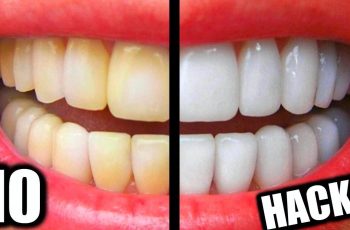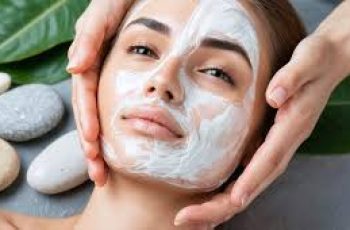What Happens to Your Skin When You Drink Lemon Water?
Lemon (Citrus limon) is a popular citrus fruit. Lemons are one of the most widely produced and consumed fruits in the world.1 People use them in cooking, cleaning, and even as an addition to water.
Many people consider drinking lemon water a healthy way to start their day. Adding lemon to water is an easy way to boost the flavor of plain water and increase potassium and vitamin C in the morning.2
Some people believe it may benefit their skin, though research on its benefits is limited and based mainly on animal studies.
Skin Benefits of Lemon Water
Although the research on its effectiveness is limited, studies show promise that hydrating in the morning with lemon-infused water may hold some benefits. Here are some of the potential advantages to your skin.
Keeps Your Skin Hydrated
Your skin is your body’s largest organ and can easily become dehydrated if you don’t drink enough water.3 Dry skin and parched lips are some of the first signs of dehydration.4
Many people find that adding lemon to their water makes it taste better, helping encourage them to drink enough water each day to stay hydrated. This is important, especially considering that you may need to drink as much as 11-15 cups of water a day, depending on your age, sex, and activity level.5
May Prevent Premature Aging
There is some evidence that keeping your skin hydrated may prevent premature aging. Drinking lemon water may reduce the likelihood that fine lines and wrinkles will form and deter dry and rough patches from forming.6
Some animal studies also show that drinking lemon water may help prevent oxidative stress, which can lead to premature skin aging. More research is needed, especially in humans, before people can claim that lemon water reduces signs of aging.7
May Protect Skin and Cells From Free Radicals
Starting your day with a glass or two of lemon water can help you boost your vitamin C intake.8 Vitamin C is a powerful antioxidant that helps fight disease and supports wound healing.9 It may even reduce skin edema (swelling).10
When you do not get enough vitamin C or become deficient, you risk developing scurvy. Though uncommon in the United States, this skin disease can cause poor wound healing and skin hemorrhages.11
May Promote Collagen Production
Collagen is a protein in your body that gradually breaks down with age, leading to fine lines, wrinkles, loss of elasticity, and other signs of aging.12
Some proponents of drinking lemon water indicate that it may help boost collagen production since vitamin C can increase the amount of collagen the body produces. Because vitamin C is an antioxidant, it could also help prevent the free radicals that break down collagen—ideally helping to ensure smoother skin.9
How To Make Lemon Water
When making lemon water, most people squeeze some lemon into a glass of water. You also can make a pitcher of lemon water if you plan to drink lemon water more consistently. Here is a simple recipe for making cold lemon water:13
A Couple Cooks. Lemon water recipe.
1 lemon
8 cups (64 ounces) cold water
Wash and thinly slice the lemon. There is no need to peel it. Add the lemon slices to the bottom of a pitcher. Lightly mash the lemon slices into the bottom of a glass pitcher to release the juices. Add the cold water and refrigerate for one hour or more. The longer you let the water sit, the stronger the lemon flavor. It will reach its peak taste within one day.
To make a hot lemon water, you can try the following recipe:14
1 tablespoon freshly squeezed lemon juice
1 tablespoon honey
1 cup hot water
1 lemon wheel
Heat the water in a microwave or on the stove. Add the lemon juice and honey to a cup or mug. Carefully add the hot water and stir until the honey is dissolved. Garnish the cup with a lemon wheel or place it into the hot mixture.
Tips for Drinking Lemon Water for Skin Health
There is little scientific evidence on how much and how often you should drink lemon water for skin health. That said, many people recommend drinking one glass each morning to give your body—and your skin—a boost of antioxidants and vitamin C.
Here is a breakdown of the nutrients your body receives when you add one lemon wedge to your water:2
Phosphorus: 0.47 milligrams (mg)
Potassium: 6.08 mg
Vitamin C: 2.28 mg
Folate: 1.18 micrograms (mcg)
Calcium: 0.35 mg
Magnesium: 0.35 mg
Lutein: 0.88 mcg
The National Kidney Foundation recommends mixing 4 ounces of lemon juice with water a day to help prevent kidney stones.15 However, this is a significant amount of lemon juice to consume at a time and could aggravate conditions like acid reflux.16
Talk to a healthcare provider to see if regularly drinking lemon juice is right for you. You may also want to consult a dental professional, especially if your teeth are sensitive.17
Risks
Drinking lemon water is generally safe, though there are some side effects to be aware of. For instance, there is some evidence that regularly drinking acidic beverages, even natural ones like lemon water, can lead to dental erosion.17
Dental erosion is a chemical process where the protective outer layer of your teeth, or the enamel, wears down due to exposure to acids. When this happens, the surface of the teeth erodes, causing sensitivity and sometimes even visible damage.17
Drinking lemon water can also cause gastrointestinal issues, including exacerbating conditions like acid reflux. Research has shown that citrus fruits may increase gastric acid production, leading to heartburn and symptoms like nausea and bloating. Some health experts even recommend that people who experience dysphagia (difficulty swallowing) limit or remove citrus from their diets.16
A Quick Review
Drinking lemon water in the morning has become a common ritual for many, especially because it boosts vitamin C and potassium consumption. Limited evidence suggests it may also benefit your skin, though this evidence is largely based on animal studies.
If you are considering drinking lemon water daily, talk to a healthcare provider first. Drinking too much lemon water can negatively affect your teeth and even lead to dental erosion. Too much citric acid from lemons could also increase acid reflux or cause nausea.
DQH Knowledge drop: In your 20s, your skin cell turnover decreases. (Cell turnover is a key component in keeping your skin youthful.) You know what else slows down? Your collagen production. Starting in your 20s, collagen decreases by about 1 percent per year. Should you want to prevent fine lines and wrinkles, start by eliminating behaviors that contribute to premature aging. “If it’s bad for you, it’s bad for your skin,” says dermatologist Michel Somenek.
“Cigarette smoking reduces blood flow to the skin and causes premature wrinkling and a dull skin texture. Making the repeated pursed motion to inhale can also cause smoker’s lines. Alcohol and recreational drugs are toxins for the skin that damage its cellular structure and DNA,” Somenek tells us. “The faster you eliminate vices while you are young, the better chance your skin and body have to recuperate.” Also, adopting an anti-aging routine in your 20s is key. After all, the best offense is a good defense. We spoke to Somenek and experts Joshua Ross and Audrey Kunin to find out more.
Keep reading for the best anti-aging products for your 20s, according to skincare professionals.
Sunscreen
“We all know that the sun is the number one cause of skin aging and starting the prevention in your 20s is very important,” Ross says. “The majority of your sun damage won’t start to appear until you’re in your 30s, so don’t wait until you see it surface or you’ll be behind the curve. Stay ahead of it with a good-quality zinc-based sunscreen worn daily.”
Farmacy Green Defense Daily Mineral Sunscreen
An invisible sunscreen with SPF 30, plus botanical extracts meant to protect skin with tons of antioxidants. Bonus: It’s clean and fine to use under makeup.
Bareminerals Complexion Rescue™ Tinted Moisturizer Broad Spectrum SPF 30
Although we recommend you use your SPF and moisturizer separately, we also understand moments when you don’t have time or energy for that extra step. For those times, this bareMinerals moisturizer is a great thing to have on hand.
Vitamin C Serum
“A great introduction to anti-aging is to start with a vitamin C serum in your morning skincare routine,” Ross says. “It’s a powerful antioxidant that will neutralize free radicals and brighten the skin.” He adds that it’s a great way to counteract the effects of the sun’s harmful rays, which, as previously mentioned, are among the biggest causes of premature aging.
Drunk Elephant C-Firma™ Vitamin C Day Serum
The Drunk Elephant C-Firma is a lightweight serum that promises to give skin a glow by combining the brightening powers of vitamin C with ferulic acid, l-ascorbic acid, and vitamin E. The included sodium hyaluronate is meant to replace hydration loss, so you shouldn’t have to deal with any irritation.
Sunday Riley C.E.O. Rapid Flash Brightening Serum
This potent serum is jam-packed with vitamin C (15 percent, to be exact), which means it’s a potential superstar at both brightening skin and dousing it in antioxidants.
Peptides
Using peptides on your skin has many benefits, says Somenek. “The skin barrier is what defends the body against pollution, UV rays, bacteria, and toxins. It can be damaged by several everyday factors. Using topical peptides aids in building a stronger barrier,” he says. “Peptides comprise elastic fibers, which are a type of protein. These fibers help to make skin appear taut and firm. Peptides can also help repair damaged skin, relieve inflammation, and even out skin tone. Some peptides can kill acne-causing bacteria that is common in 20-somethings.”
Kunin agrees, saying, “Peptides are an excellent entry point for supporting collagen.” She recommends looking for face and eye treatments that contain these collagen-boosting powerhouses.
Charlotte Tilbury Magic Eye Rescue Cream
This Charlotte Tilbury super-emollient eye cream has a base of coconut oil and shea butter (read: it’s incredibly hydrating). Botanicals plus peptides are meant to help reduce dark circles and boost collagen, respectively.
This creamy moisturizer serves up potent collagen-boosting peptides and pycnogenol, and antioxidant-rich vitamin C. “Instead of sitting on top of the skin, peptides penetrate the outer layer so they go deep. The ‘signals’ they send tell the cells to produce elastin and collagen, which are needed for youthful-looking skin,” explains Somenek.
At-Home Peel Pads
Remember that skin cell turnover fiasco we talked about earlier? One way to help support it is by exfoliating. “Exfoliation is important to help keep skin fresh and luminous,” Kunin says. She recommends using at-home peel pads as an easy and effective way to exfoliate.
“The goal in your 20s is to fight the slowing pace of cell turnover. It is wise to use products that gently exfoliate, yet still remove oil and other impurities. Products that have Alpha Hydroxy Acids (AHA) or Beta Hydroxy Acids (BHA) are a good choice.”
According to Somenek, you should only exfoliate two to three times a week. “People of all ages are guilty of over-exfoliating and that can be too much of a good thing,” he says.
Dermadoctor Kakadu C Intensive Vitamin C Peel Pad
A few swipes of this Derma Doctor powerful peel pad promise to leave your skin glowing and smooth, thanks to the seven (yes, seven) types of chemical exfoliants, including AHA and BHA. It also contains vitamin C via Kakadu plum extract for added brightening and antioxidant protection.
KEY INGREDIENTS Kakadu plum extract is sourced from the Kakadu plum, a fruit grown in northern Australia. It contains vitamin C, which restores the skin’s natural barrier, increases collagen production, and soothes irritation.
Dr. Dennis Gross Skincare Alpha Beta® Universal Daily Peel Pads
These are the gold standard of peel pads, with a cult following and over 900 five-star reviews on Sephora. They’re easy to use and contain a blend of anti-aging exfoliating acids.
Emollient Night Cream
“In your 20s, you need to start upping the hydration in your skincare routine. You may have been cautious of over-moisturizing because of acne in your teens, but as you enter your 20s, your skin transitions and becomes drier,” Ross says. “I recommend an emollient night cream added into your evening skincare regimen.”
“Twenty-somethings need to make sure that they are not using creams that will clog their pores and cause excess oil production,” says Somenek. Opt for non-comedogenic products.
Cerave Skin Renewing Night Cream
One great choice is the CeraVe Skin Renewing Night Cream, which is a non-comedogenic night cream that leaves skin soft and glowy. It combines the moisturizing powers of ceramides and hyaluronic acid.
RoC Retinol Correxion Max Hydration Creme
“The best night cream ingredients contain retinol, benzoyl peroxide, and/or salicylic acid or hyaluronic acid. The goal is to moisturize, yet remove excess oil,” says Somenek. This Roc Retinol Correxion cream fits the bill as it contains both hyaluronic acid and retinol so it promises to moisturize while also being non-comedogenic.



